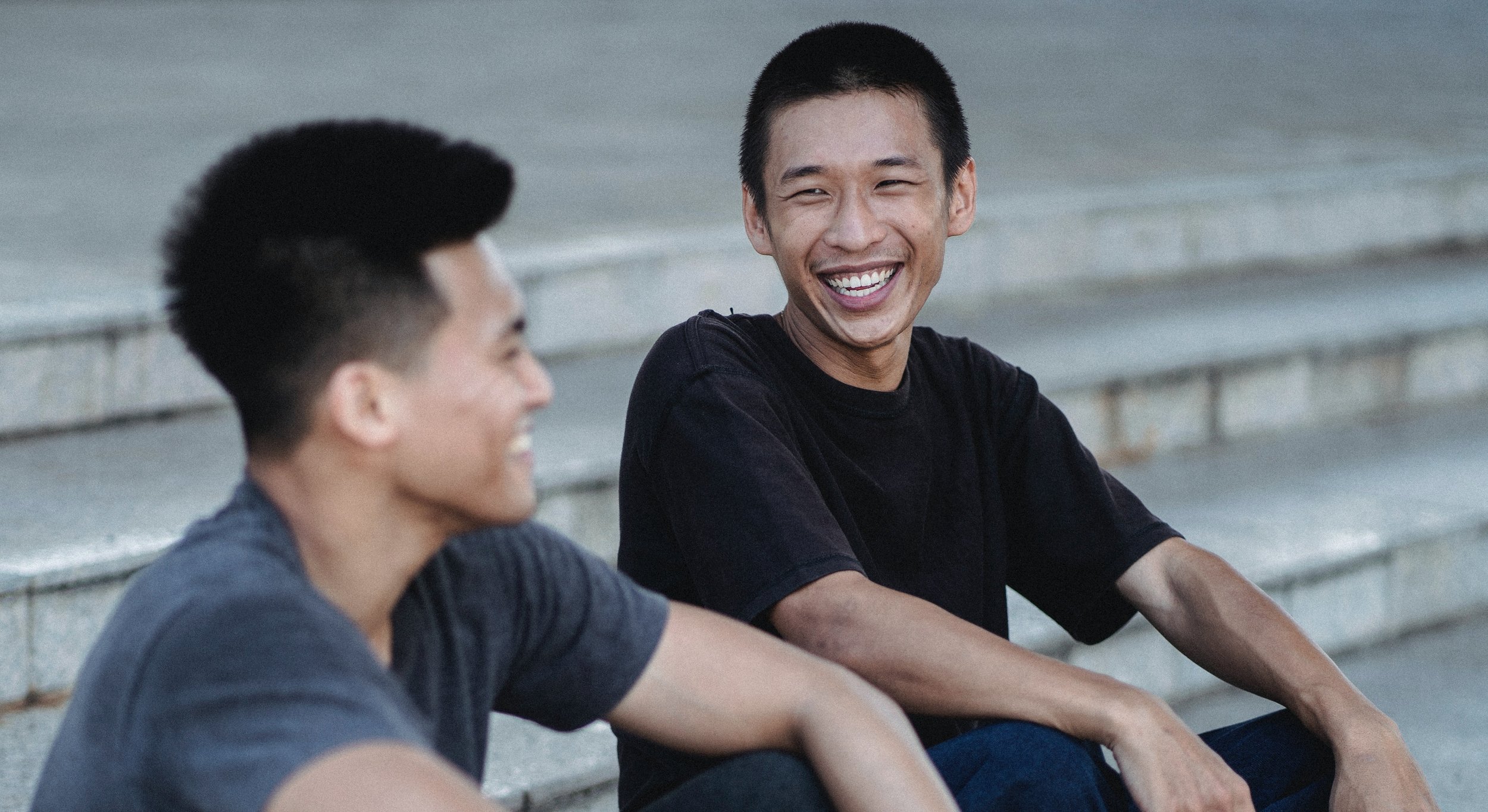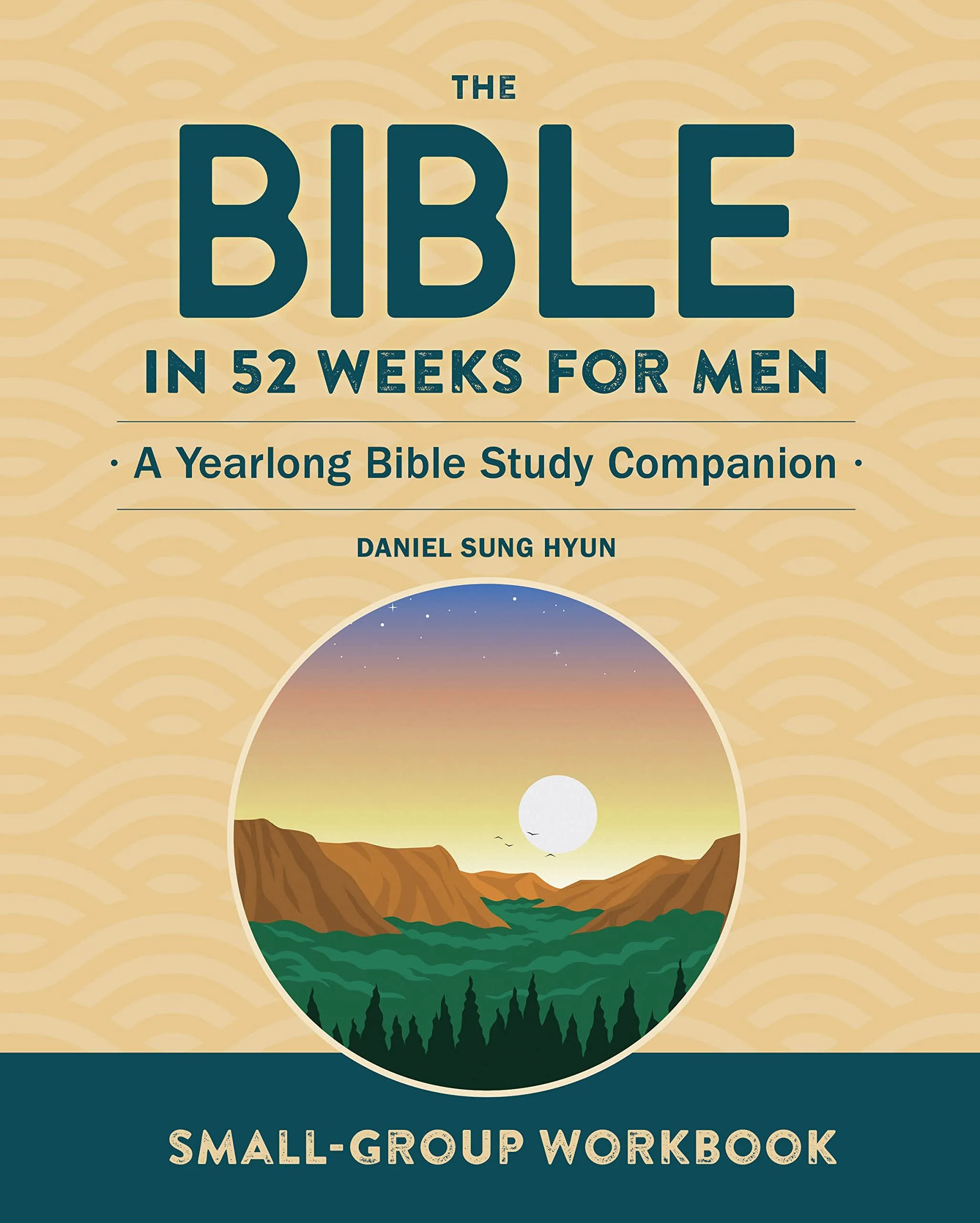Reading the Bible Beyond White Masculinity: Author Q&A with Pastor Dan Hyun
By AACC Editorial Team
S
o many Christian books are written in and for White male voices. What would it look like if that was not the assumed default? In this author Q&A, we talked with Pastor Dan Hyun about his recently released book The Bible in 52 Weeks for Men: A Yearlong Bible Study Companion and how he wanted to use his Korean American perspectives and experiences to encourage us to engage the Bible and masculinity in and through our cultural backgrounds.
Pastor Dan, what inspired you to write a Bible study geared toward men? Was there something you particularly wanted to see in Bible studies for men that was lacking in your experience–or what was the inspiration for this study?
A men’s book actually wasn’t on my radar. I remember clearly that it was a couple of weeks after the fallout of the Atlanta spa murders. Similar to what others were experiencing, those events brought into focus some convictions I had been feeling for a while, especially related to the experience of Asian American women and the inordinate injustice they bore. One commitment I’d made was to do what I could to stand for my sisters.
So, when I was approached to write a book for men, it initially seemed misaligned with those goals–if not tone deaf. Almost like God was just being funny. But as I reflected on it, I felt a strong conviction that my part in advocating for women was to own my responsibility in how I would lead men. I should continue to intentionally disciple men and help develop more of the kind of men I believe we need.
You bring your personal and cultural experiences to bear on understanding the biblical text. What is unique or nuanced about being a Korean man that is lost when so much of Christian media is targeted for a default White Christian man?
I think it’s first acknowledging how much of my own views of masculinity had been shaped by those perspectives you mention and not always for good. When it came to my experience of most evangelical men’s ministries, though I could resonate with some broader ideas, I can’t remember ever hearing an authoritative voice that reflected my life’s journey.
With this book and other ministries, I’m not just speaking to Korean or Asian American men. I believe it’s important for all of us to be formed through many different voices to represent the larger fullness of God. In my small way, I want to do what I can to promote the idea that Asian Americans aren’t just invited in larger spaces merely to contribute our presence; I want it to become normative that we’re also there to lead. It reinforces my belief that for the larger Church to be all it was intended to be, it requires the influence of all of us, including Asian Americans.
I particularly appreciated that the book went beyond sports and superhero metaphors for masculinity and engaged with biblical examples of masculinity that were countercultural or expanded on our understanding of masculinity. How did you select which biblical figures to focus on as you designed the study?
I appreciate some more stereotypical examples typically associated with masculinity, like sports for example. But in my observation, the Western Church’s understanding of masculinity has too often been reflective of the larger culture around us at the expense of a culture formed by the Spirit.
Put another way, I’ve thought that some of the calls to be more manly–even in Christian settings–could be done without ever opening up a Bible. In doing so, a whole segment of the population isn’t able to resonate if they feel like they’re outside the boundaries of what it means to be “manly” as defined in these more narrow ways–which has even caused some Asian Americans to be stereotyped as unmasculine.
You address topics of mental health, emotions, fears, and male friendships. Other men’s Bible studies I have participated in focus primarily on parenting, on sexuality in marriage, on career, while not really touching on those areas you address. What prompted you to focus on those topics?
Not that those areas you mention aren’t important, but I feel like a lot of folk already talk about it. When I was growing up, it felt like every talk for men turned out to be about the battle with lust. Again, that’s important but I purposely tried to engage some topics that may not be as common for men to consider, especially with one another. To reinforce to men that we are holistic beings and that part of our challenge is because we haven’t intentionally matured in all of who we are, including in areas such as our emotions.
I was also writing out of my own experience as an Asian American man: much of the pain I’ve experienced in life was because I wasn’t mature in some of these aspects and part of my healing journey has been owning how some of my relationships have also suffered because of that. In some of my circles we talked a lot of spiritual maturity but not as much about other aspects of maturity and I think we’re witnessing a lot of the fallout of that. I hope to do better with a younger generation of men, especially Asian American men.
How did your perspective on gender/masculinity change as you were working on the book?
I was writing during a season of the very public fallout of a lot of tragic stories that could be tied to toxic masculinity, both in the larger evangelical world but also in the Korean/Asian Church.
I couldn’t help but keep that in mind as I wrote. It forced me to not just point fingers, but to also let the Spirit search me and reveal how I needed to repent and grow as a follower of Christ who happens to be a man. As a Korean American man and pastor, it wasn’t just speaking to other people’s issues. I needed to be humbled to recognize where I needed the Lord’s work in my life. That if I am given a place to lead in these spaces, to bear that responsibility with much trembling.
And finally, what pastoral encouragement, challenge, or exhortation would you give to men, especially Asian-American men, as they pick up this book?
Isolation is sadly the default for a lot of us but it’s so harmful. This book particularly is intended to be chopped up with others, so I hope we can do so. The goal of the book isn’t meant to be merely informative but to welcome us into deeper relationships with God and others.
And to Asian American brothers, learn to follow but also recognize that you’re called to lead. But let’s do so in a way that empowers others to be all they were intended to be!
Dr. Daniel Hyun was raised in the greater Philadelphia area and is passionate for God’s work in the city having served with urban churches in Philadelphia and Baltimore. In 2008, he was privileged to lead a team to start The Village Church in Baltimore, MD with dreams of making God famous through justice, mission, and reconciliation. Dan’s vision is to empower others to serve God with all they have. He serves as a missionary, pastor, professor, and writer and is frequently invited to speak on a wide variety of issues including justice, mission, reconciliation, and leadership. His interests include sports, working out, good food, and conversations on culture. After God, his greatest joy & desire in life is for his lovely wife, Judie, and two daughters. You can follow Dan on Twitter, Instagram, and Facebook to see what God continues to show him.
Help us continue the work of empowering voices. Give today.



